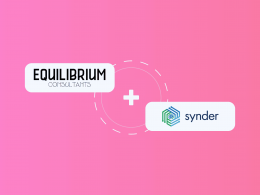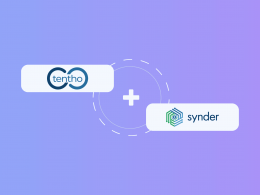The accounting industry has undergone some serious technical changes due to technological advancements but first and foremost due to a global pandemic. Accounting firms have been forced to drastically change working environments and the way they work, as well as reconsider the services they provide. This turbulent time led to the rise in demand for client accounting services (CAS) – something that has been around for a couple of decades, but is coming into full swing only today.
While the concept of CAS isn’t new, it’s still not known to many business owners and lots of certified public accountants (CPAs) struggle to persuade their clients to switch to this format of accounting. Let’s dive into the notion, formats, scope, and benefits of CAS to see why accounting firms strive to improve client experience and why business owners need to reconsider the way their accounting is done.
Contents:
1. What are client accounting services (CAS)?
2. Why the way a firm packages CAS matters for a business
3. CAS formats: choosing the right one for your business
4. Benefits of using CAS or why you don’t have to do everything yourself
What are client accounting services (CAS)?
Client accounting services (CAS), sometimes referred to as client accounting advisory services (CAAS), are a variety of accounting services provided by CPAs to clients ranging from basic bookkeeping to advanced management reporting, advisory and guidance services. Basically, if a business utilizes CAS, it means that they hire a CPA or an accounting firm to perform some or all the accounting work for them. Modern CAS firms take advantage of the technology in general and cloud in particular, provide back-office support and function as an outsourced accounting department customizing accounting services to the needs of their clients.
CAS expands beyond the traditional scope of bookkeeping and tax preparation. More and more clients are preoccupied with actually running their business, not figuring out the numbers. They’re interested in fast and customized accounting services, data-driven business advice and strategic decisions that lead to growth both in terms of size and revenue. Client advisory services cover various areas – advanced reporting, business efficiency, payroll management, tax preparation and filing, human resources management, and software management just to name a few. CPAs traditionally try to widen or narrow the scope of the services they provide to make sure the needs of their clients are met.
From Theory to Reality: Dive into the Synder Insights use case to get an idea of CAS full potential. See more!
Why the way a firm packages CAS matters for a business
As you can see, the definition of CAS is quite broad and includes different types of services depending mostly on the accounting firm a client chooses to hire. While for some clients (mostly small businesses), traditional transactional services such as management of accounts cover their needs, larger businesses (or the ones looking to expand) require strategic advice which falls under the umbrella of an outsourced CFO.
When a client considers several accounting firms, he must evaluate the way each firm packages CAS – what’s good for everyone might not be enough for you.
Typical CAS packages include:
- Transactional services: bookkeeping, processing of AR (accounts receivable) and AP (accounts payable), payroll, bill payment and cash management;
- Compliance services: tax preparation and payment, tax planning, payroll compliance, audits, reviews, after-the-fact financial statement preparation and financial reporting;
- Performance and advisory services: data analytics, benchmarking, outsourced CFO (strategic financial planning and modeling);
- Accounting software training: managing specialized accounting software, integrating platforms.
But finding the right package is only the first step – study the format of the firm in question.
Curious to learn about modern CAS in practice? See Synder Insights’ real-world implementation in our detailed use case. Check it out now!
CAS formats: choosing the right one for your business
When considering different options of accounting firm services, clients have to take into account various formats in which a firm may offer CAS. Typically, they weigh pros and cons of outsourcing to offshore/onshore services, as well as centralized/decentralized CAS.
Offshore and onshore CAS
Imagine you have a business registered in the US and decide you need accounting advisory services. You’ve got two options – you may outsource to an onshore or offshore service.
Onshore CAS means that you turn to a US-based CAS provider and your accounting and bookkeeping professionals are located in the US. While clients usually pay more for onshore CAS, they get first-rate service and top-notch specialists available on demand during regular business hours.
If you opt for offshore CAS, the team of professionals will be located in a different country (accounting hubs are usually based in the Philippines, India or Central America). Offshore CAS costs less but entails potential risks that clients must be aware of – unavailability of specialists due to time differences, as well as cultural and linguistic nuances.
As you can see, before choosing onshore or offshore CAS, you need to consider risks and trade-offs involved, as well as the size of your business and economic feasibility of a chosen format.
Centralized and decentralized CAS
The difference between centralized and decentralized CAS lies in the way that firms offering client accounting services operate in terms of staff. The pandemic has greatly affected the way accounting is done – firms nowadays realize that it’s no longer necessary to work exclusively offline and have an accountant on site, a lot of the services don’t require physical presence and can safely be performed/delivered online. However, it’s not black and white – we’re in the gray zone here.
If a firm providing a business with accounting services operates from a centralized service center and the team members work together daily at one location, clients get centralized CAS. The team knows each other well which means their work is smooth and fast and their performance is high. As a result, a business receives customized client accounting services with closer supervision and in-depth understanding of their finances. Firms with service centers are considered to be more dedicated and cohesive than the ones providing decentralized CAS because they act as virtual accounting departments.
If a firm offers decentralized CAS, the distributed teams are usually composed of home workers that aren’t physically in one place and therefore have fewer opportunities for individual and group training. Supervision in such cases is not as strict. However, this doesn’t mean that they provide poor services to their clients – cloud-based CAS practices are at their all-time high. Let’s embrace the fact that leveraging remote teams has become the staple of successful business all over the world. Go for reputation, not location.
Benefits of using CAS or why you don’t have to do everything yourself
Reducing the costs of accounting services with the help of CAS firm
Each business owner knows that having an experienced accounting professional on the team is paramount. But what if a business can’t afford to hire a full-time employee? Outsourcing accounting tasks to a CAS firm is a great solution to the problem. Just make sure you study your options.
Verifying that your business is financially compliant
CAS firms make sure that your business adheres to the financial compliances established by the authorities so that you don’t have to. They monitor changes, ensure that the financial records of their clients are in accordance with the respective regulatory laws and they’re ready for everything, be it tax season, tax audit or review.
Hiring experienced professionals who offer scalable services
If you start out small and outsource only basic accounting to your CAS firm at first, chances are that your needs will become more complex in time and you’ll end up needing outsourced CFO and controller services. Experienced professionals evolve with their clients – if the client’s needs change, their client accounting services will change as well.
I’m an accountant: do I need to attend a workshop to provide CAS to my clients?
Accountants looking to provide client accounting advisory services or extend their competencies constantly develop their skills and strengthen their expertise by attending specialized workshops and completing self-study courses. Earning an advisory services certificate increases the chances of a CPA to be hired by a top-notch accounting firm, as well as boosts the firm’s credibility and trust among clients and the accounting community alike. It’s a win-win on both sides.
Making informed decisions based on actionable insights
As objective as you strive to be, having an unbiased perspective on the financial matters and current standing of your business can’t be underestimated. Sometimes all it takes is a fresh look at the problem – the solution is always there. The challenges you face may become sources of growth and help you make strategic decisions in future.
Using technology to elevate your performance
Modern CAS has access to automated accounting software which greatly simplifies accounting tasks. Thanks to the use of cloud technology and the digitalization of data, CAS firms offer their clients full back-office support with a focus on analytics and timely advisory services.
Nowadays CPAs no longer need to concentrate on processing the data – they’ve got systems that automate everything from tax filings to payroll filings. Automated solutions allow a much deeper collaboration between CAS firms and their clients, establish great client-service firm relationships, which in turn lead to better results.
Synder and CAS: a perfect match for the best service
Synder allows you or your CPA to limit manual processes, lessen the opportunity for human error and make your operations more efficient. You can connect all your platforms (Stripe, eBay, Etsy, Amazon, Shopify, etc.) into an all-in-one source of truth about your business and address multiple issues – capturing and categorizing detailed transaction data, facilitating reconciliation, providing you with advanced reporting and an insight into your KPIs for critical business decisions, just to name a few. Synder Business Insights generates real-time customizable reports and dashboards that fit even the most demanding needs, demonstrates trends and allows for short- and long-term strategic planning.
Synder’s technology offers CAS clients much needed support and confidence in what they do. The software is perfect for e-commerce and SaaS businesses, and has a lot to offer to accountants and marketing agencies looking to extend their services.
| Check out a full list of KPIs you can track with Synder in our article: 👉 Hot Synder Reporting Feature: Keep Track of Your Business Analytics 👈 |
Saving time for things that matter
With CAS, businesses may address the issues at hand – customer service experience, both customer and employee retention, profit maximization, investment management, business development and expansion, and many more. Outsourcing your accounting allows you to have much more power over the way you spend your resources, provides you with stress-relief and gives you additional time to devote to your clients.
Bottom line
As the accounting industry continues to evolve, CAS firms are becoming more and more popular. Clients are looking for a wider variety of services that take into account all the intricacies of their businesses and current economic conditions. Although CAS can go by different names and can include a range of services, they have one fundamental goal – make sure that you as a client have peace of mind and receive the most relevant information to drive critical decisions daily. Get the best of automated technology and professional accounting advice!







Thanks for the blog.
Excellent articles!
Thank you very much for your hard work.
Thank you so much for your kind words!